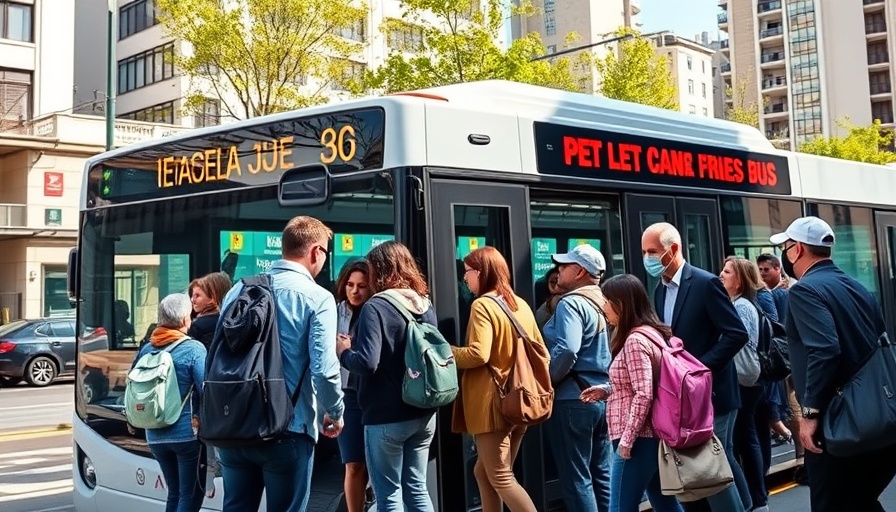
The Rise of Electric Mobility in Latin America
Latin America and the Caribbean (LAC) are on the brink of a transportation revolution. As urbanization, air pollution, and climate change become increasingly pressing issues, electric mobility, or e-mobility, is emerging as a key solution. With the transport sector accounting for over a quarter of greenhouse gas emissions in the region, the push for e-mobility transcends environmental goals; it is also about fostering public health, reducing reliance on fossil fuels, and unlocking economic opportunities.
Leading the Way: Success Stories from the Region
Countries like Chile and Colombia have been frontrunners in this space. These nations have developed some of the world's largest electric bus fleets outside of China, setting an inspiring example for others to follow. Cities throughout LAC are introducing electric vehicles into their public transport systems, demonstrating that a commitment to sustainability can translate into concrete action and improved urban environments.
Collaboration: The Financial Backbone of E-Mobility
The journey toward widespread electric mobility in LAC hinges on collaborative financing models. The recent partnership between the World Bank Group and the Inter-American Development Bank (IDB) underscores this necessity. Their shared initiative aims to create a financing platform that aligns efforts from various stakeholders to further propel e-mobility forward. This collaboration has already pledged substantial investments, totaling around US$5.7 billion for transitioning the region to electric transportation.
A New Forum for Ideas: The LAC E-Mobility Salon
To bolster these collaborative efforts, the LAC E-Mobility Salon has been launched. This innovative coalition serves as a knowledge-sharing platform designed to connect public agencies, private organizations, researchers, and civil society groups. The Salon hosts biannual events geared toward discussing challenges, sharing insights, and coordinating strategies. By facilitating open dialogue, the Salon aims to enhance collaboration and foster a community focused on solving the region’s transportation challenges.
Why E-Mobility Matters for the Future
As LAC continues to urbanize and confront environmental challenges, the importance of electric mobility cannot be overstated. It represents a dual opportunity: a commitment to more sustainable urban living and a strategic move toward reducing the region’s carbon footprint. In promoting electric vehicles, LAC not only works toward climate goals but also creates jobs, enhances public health, and fosters energy independence.
Looking Ahead: The Future of E-Mobility in the Region
As nations within LAC strive for a greener future, the momentum for e-mobility must be sustained. Continued collaboration among stakeholders, proper investment in infrastructure, and robust policy frameworks will be critical to the region's success. Ensuring that all voices are heard and all communities are included in this transition will be vital in creating equitable and effective solutions.
In conclusion, accelerating the transition to electric mobility in Latin America and the Caribbean is not just a choice—it is an essential pathway to a healthier, more sustainable future. The excitement around this movement holds promise not only for individuals living today but also for the generations that will follow.
 Add Row
Add Row  Add
Add 




 Add Row
Add Row  Add
Add 


Write A Comment